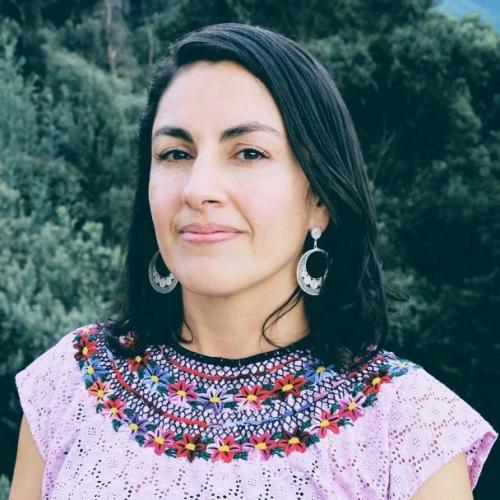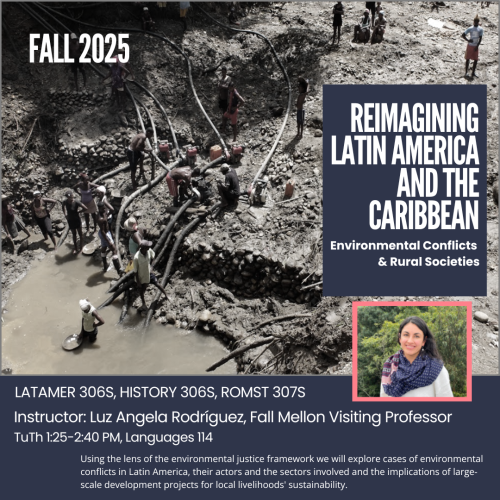

Professor Rodriguez will teach two courses during her residency at Duke:

LATAMER 306S – Reimagining Latin America & the Caribbean: Environmental Conflicts and Rural Societies (HISTORY 306S, ROMST 307S)
Instructor: Luz A. Rodríguez, TuTh 1:25-2:40 PM, Languages 114
Latin America plays a central role in the provision of environmental services at a global scale. For instance, the Amazon biome extends over an area of 6.7 million square kilometers, nine countries, and corresponds both to the largest humid forest in the world and the largest agricultural frontier. Different processes of accelerated environmental change are taking place in the continent which are rooted in economic and political drivers that are contested by rural and urban communities who frame their claims in an environmental justice language. Using the lens of the environmental justice framework, we will explore cases of environmental conflicts in Latin America, their actors and the sectors involved and the implications of large scale development projects for local livelihoods' sustainability.
ENVIRONMENT 579S – Collective Action, Environment & Development (PUBPOL 579S)
Instructors: Luz A. Rodríguez and Alex Pfaff, M 3:20-5:50 PM, Sanford 150
Examines the conditions under which collective or participatory decisions may raise welfare in defined ways. Presents the growing empirical evidence for an environment and development setting including common property issues (tragedy of the commons and competing models). Identifies what evidence exists for sharing norms on a background of self-interested strategies. Definitions of and reactions to equity and/or its absence are a focus. Providing scientific information for policy is another. Experimental and behavioral economics are frequently applied.